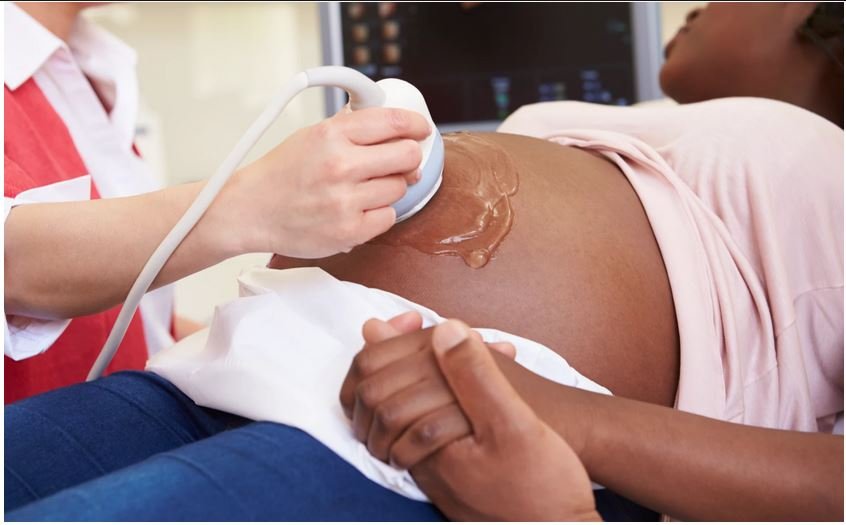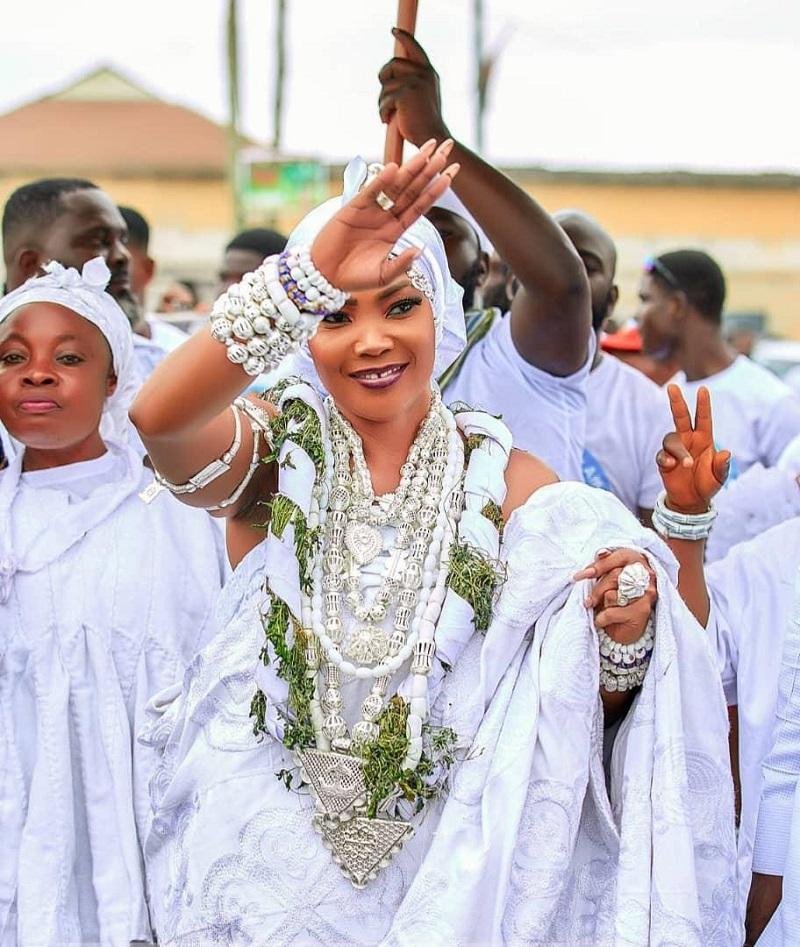Gender
Pregnant women advised not to shy away from referrals

Mr Freda Alowri, a Senior Midwifery Officer (SMO) at the Zorko Health Centre in the Bongo District of the Upper East Region, has admonished expectant mothers to promptly adhere to referral orders from lower to higher health facilities to prevent complications.
She said referrals, especially from health facilities in rural areas made to higher facilities for further management, should be taken seriously without delays especially in pregnant women since that could result in complications and possible deaths.
“Pregnant women in rural areas are usually reluctant to go on referrals to higher facilities and if there is an issue those of us in the deprived communities cannot handle.”
“It is not all the cases that those of us in derived areas can handle, and so if we detect such cases and refer, they should not delay, but go immediately,” she said.
Ms Alowri, who has decades of work experience in the rural community, gave the advice in an interview with the Ghana News Agency (GNA) after she was awarded the 2024 Best Midwife by the District Health Directorate of the Ghana Health Service (GHS).
The Directorate at its 2024 annual health performance review meeting held in Bolgatanga, recognised Ms Alowri’s “Outstanding skills and expertise in the domain of maternal and neonatal care”.
The Directorate said her commitment to delivering high-quality care, mentorship and adherence to best practices had profoundly influenced maternal health in the district.
The midwife advised women in rural areas to immediately visit the nearest health facility if they missed their menstrual cycle and suspected pregnancy.
She said early Ante-Natal Care services in the first trimester of pregnancy was the surest way for safe delivery and insisted that “Pregnant women should try to visit the nearest health facility early for good maternal services.”
For midwives who refused postings to rural areas to work, Ms Alowri said there was much experience to gain at health facilities in rural areas, and urged midwives, especially junior staff to accept postings to any part of the district where their services were needed, and work diligently to uplift the image of the GHS.
Ms Estella Abazesi, the District Director of the GHS, who presented the award to the midwife, told the GNA that staff motivation was important to the directorate as a means to urge them to deliver their best.
She said staff nominated among themselves, those they thought deserved awards, and management also considered key performance indicators of the various facilities for the awards.
“The indicators carried 70 per cent performance and 30 per cent for the nomination. That was what we did for both individual and for the facility level,” she said, and encouraged her staff to continue to work hard to improve service delivery.
The directorate, apart from Ms Alowri, recognised and honoured nine other staff under various categories namely: Mr Mohammed Abu, Mr Michael Awia Achuliwor, Madam Cynthia Lariba Apemjobey, Mr Maxwell Kamah Alagnona, Mr David Adongo, Madam Gloria Wulug, Madam Rihanna Akugre Awudu and Madam Agnes Aloyine Atibila.
Three Community-based Health Planning and Services (CHPS) compounds; the Beo Tankoo CHPS, Kadare and Nayorigo CHPS together with the Namoo, Soe, Valley and Zorko sub-district zones were awarded.
The GHS also honoured WaterAid Ghana, a non-governmental organisation, for its contributions to healthcare delivery in the district. -GNA
Gender
Ngleshie Alata Queen mother pledges to champion girl-child education

The newly enstooled Paramount Queenmother of Ngleshie Alata, James Town in Accra, Naa Affipong IV, has pledged to make girl-child education the cornerstone of her reign, emphasising its critical role in transforming communities and empowering future generations.
Speaking after her recent enstoolment, Naa Affipong IV, known in private life as Mrs Alberta Addo, called on parents and guardians to prioritise the education of their daughters, stressing that educating a girl has a far-reaching impact beyond the individual.
“I pledge to dedicate my reign to champion girl-child education, which is a crucial tool for youth empowerment and community development,” she declared.
She pointed out that empowering girls through both academic and vocational training would not only reduce social issues such as teenage pregnancy but also prepare them to become responsible and influential leaders in society.
Naa Affipong IV highlighted the urgent need to provide young girls with equal opportunities and create environments that support their growth and confidence.
She urged parents to be intentional about their daughters’ futures, saying “an educated girl has the power to lift her entire family out of poverty and transform her community. We must not fail them.”
The Queen mother also appealed to chiefs, elders, and community leaders to join forces in promoting initiatives aimed at empowering the youth, particularly young girls, through education, mentorship, and entrepreneurship.
While advocating girl-child education, Naa Affipong IV stressed the importance of peace, unity, and moral values within the community, especially among the youth.
The Queenmother also emphasised the importance of collaboration between traditional authorities and state institutions to address broader community challenges such as unemployment, infrastructure deficits, and social vices.
Her enstoolment ceremony was marked by vibrant cultural displays and attended by chiefs, queen mothers, elders, and residents of the Ngleshie Alata community. As part of the rites, she swore an oath of allegiance to the elders of Adjumako Durampong, promising to serve her people with dedication
By Esinam Jemima Kuatsinu
Gender
Vice President Opoku-Agyemang visits five families of victims of helicopter tragedy

Vice President Professor Naana Jane Opoku-Agyemang on Tuesday led a government delegation to pay a courtesy visit on the families of the five civilian victims of the August 6 helicopter tragedy.
The visit, which was on behalf of President John Dramani Mahama, who is currently on a working visit to Japan, was to comfort the widows and children of the deceased persons, and to find out how they were doing.
The Vice President’s delegation visited the families of Dr Samuel Sarpong, Vice Chairman of the National Democratic Congress (NDC) and Mr Samuel Aboagye, Deputy Director-General, National Disaster management Organisation (NADMO).
The rest were the families of Alhaji Mohammed Muniru Limuna, Deputy National Security Coordinator in-charge of Human Security; Dr Edward Kofi Omane Boamah, Defence Minister and Alhaji Dr Ibrahim Murtala Muhammed, Minister of Environment, Science and Technology.
Members of the Vice President’s delegation included Mr Julius Debrah, Chief of Staff at the Presidency; Dr Valarie Sawyerr, a Senior Presidential Advisor for Governmental Affairs; Mr Alex Segbefia, Chief of Staff at the Office of the Vice President and Mr Seth Terkper, Economic Advisor to the President.
The rest are Nana Oye Bampoe Addo, Deputy Chief of Staff in-charge of Finance and Administration; Mr Fifi Fiavi Kwetey, General Secretary of the ruling National Democratic Congress (NDC); Hajia Shamima Muslim, Deputy Presidential Spokesperson; Nana Yaa Jantuah, a Presidential Staffer and Mr Rex Omar, Presidential Staffer.
The Limuna Family expressed gratitude to the Government for the visit, stating that the visit would go a long way to strengthen and comfort them.
Hajia Shamima Muslim, a Deputy Presidential Spokesperson, speaking to the media at the end of the visit, said President Mahama had directed that the delegation should visit each family of the deceased persons to find out how they were doing, especially the spouses and the children.
She noted that because the President was out of the jurisdiction, the Acting President, Vice President Professor Opoku-Agyemang, led the delegation to pay visitations to each one of the families of the victims of the tragedy.
She said basically, the visit was also to communicate the President’s commitment to support the families through this very difficult period and to reassure them of the pledge that he had made, especially for the families with young children, who were still in school, with the announcement of the Children’s Support Fund.
Hajia Shamima Muslim announced that a lot of donations were already coming through.
She said those who might want to also visit the Government Communication portals on how they could also donate to the Children’s Support Fund for the various victims or the families of the nation’s fallen heroes could do so.
That, she said, was also to help the Government ensure that whatever their fathers would have done for them, the Government would step in and do the same.
Touching on the adult children of the victims, Hajia Shamima Muslim said conversations were around on how to support their own aspirations; stating that it was the same commitment to them.
“So today we just came to reassure the families that the President is with them and will stand with them throughout this very difficult period,” she said.-GNA














